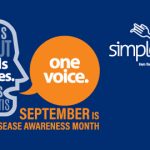What do patients get when they sign up? Each person who signs the ACR’s pledge will be sent a pedometer and wristband. They’ll also receive simple tips they can follow to get started with their health and wellness journey. By providing their email address, they’ll be automatically signed up for relevant Simple Tasks updates and tips.
The Rheumatic Disease Report Card
The ACR’s media relations efforts this year will focus on an exciting, first-of-its-kind, Rheumatic Disease Report Card that seeks to answer the question, “How easy is it to live with rheumatic disease in my state?” This groundbreaking Report Card assigns states letter grades based on such factors as access to rheumatology care, affordability of care and encouraging healthy lifestyle habits that ease the burden of rheumatic disease.
To ensure the Rheumatic Disease Report Card aligns with the ACR’s strategic goals, it was developed by an interdisciplinary task force comprising members from three committees: Communications and Marketing (CMC), Government Affairs (GAC) and Rheumatologic Care (CORC). The Report Card Task Force carefully developed grading indicators, methodology and weighting to come up with each state’s grade, and played an integral role in identifying the key messages important to promoting the findings.
During September, the ACR will promote the new Rheumatic Disease Report Card through a satellite media and radio tour. Our goal is to raise awareness about important issues the CMC, GAC and Report Card Task Force believe are aligned with the ACR’s strategic goals. We hope it drives discussion about some of the important issues affecting our patients and what states can do to improve their grade and help people live healthier lifestyles.
With an estimated 54 million U.S. adults—one in four—having a doctor-diagnosed rheumatic disease, it’s never been a more critical time to turn the tide on this public health crisis. Doing so will require patients, physicians and policymakers working together to address the access, affordability and lifestyle factors that can mean the difference between a life cut short by pain and disability, and one well lived. Be sure to read the report and visit www.simpletasks.org/reportcard to download a fact sheet with information specific to your state that you can share. Talk with your patients, colleagues and local legislative contacts about ways to improve your state’s grade and the quality of life for every person with rheumatic disease.
I hope you’re as excited as we are about the 2018 Rheumatic Disease Awareness Month, and our comprehensive campaign to improve health, wellness and quality of life for everyone with rheumatic disease. Together, we cannot just encourage our patients to take actions that lead to wellness, but we must actively partner with them, so they set positive wellness goals and reach them to lead active, full and truly enjoyable lives.



